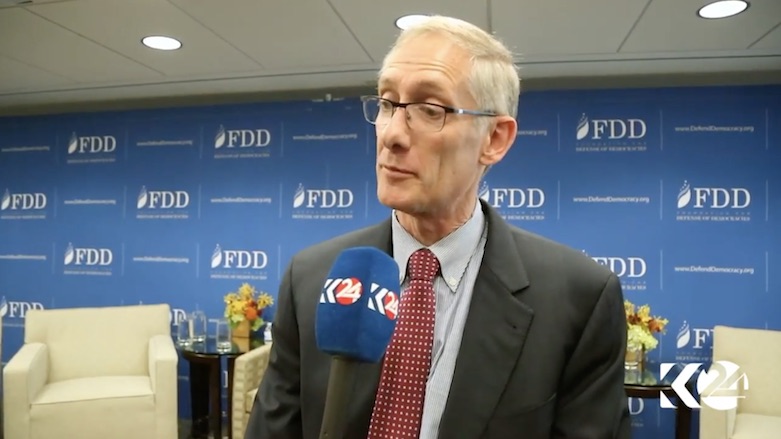Senator Marco Rubio: Open to direct arms sales to KRG
WASHINGTON DC, United States (Kurdistan24) – Senator Marco Rubio last week told Kurdistan24 he was “open” to the idea of direct US arms support to the Kurdistan Region.
Direct military aid for the Peshmerga would be a significant departure from current US practice, in which all such assistance to the Kurdistan Region is channeled through Baghdad.
But, as the Florida Republican noted, “The Kurds have proven to be incredible allies in the fight against radicalism.”
“I certainly think that’s a factor we should take into account moving forward in terms of whether we provide aid directly or not,” Rubio said, as he concluded, “I’m open-minded to the idea of direct aid.”
Rubio’s remarks have added significance, as he sits on the Senate Foreign Relations Committee, which oversees the State Department.
The State Department, in turn, approves the US government’s sale of military equipment to other countries (formally known as Foreign Military Sales).
The State Department recently notified Congress it had approved the sale of arms and other equipment to outfit two Peshmerga infantry brigades and two support artillery battalions.
The material has an estimated value of $295.6 million.
This is the second time the US has specifically allocated military equipment for the Peshmerga.
The first such occasion was last summer, shortly before the operation to liberate Mosul began. The US agreed then to a $415 million aid package for the Kurdish forces.
That first package covered equipment for two Peshmerga brigades (different from those that will be equipped through the new assistance), and it also helped the cash-strapped Kurdistan Regional Government (KRG) pay Peshmerga salaries.
The first package was an outright grant, aimed at preparing the Peshmerga for the Mosul offensive.
The second package is part of a large loan to Iraq, provided under the Foreign Military Financing (FMF) program. It is to be repaid over an eight-year period.
This second assistance package is not tied to any specific military operation but aims at “ensuring a strong, viable Iraqi military,” in the language of the State Department.
Despite their differences, the two packages share an important point: both agreements were officially concluded between the US and Iraq.
Most other countries, such as the UK, as well as Russia, follow the same policy of channeling arms for the Peshmerga through Baghdad and securing its approval for such supplies.
Germany, however, is a significant exception. It provides weapons directly to the Peshmerga and does not make those deliveries contingent on Baghdad’s approval.
Germany also has some 140 soldiers in the Kurdistan Region, where they’ve helped train some 5,000 Peshmerga forces since 2014.
In February, Germany’s Defense Minister Ursula von der Leyen met Kurdish President Masoud Barzani when he attended the Munich Security Conference.
She described their “excellent” meeting and the “courageous role” and “reliability” of the Peshmerga.
“I’ve told President Barzani that we are grateful for the very positive experience we’ve had” with the Peshmerga in fighting the Islamic State, the German Defense Minister explained to the international press.
“Whatever we discussed with them, they did,” von der Leyen affirmed.
Editing by Karzan Sulaivany
(Kurdistan24 team conducted the interview from Washington, DC)

